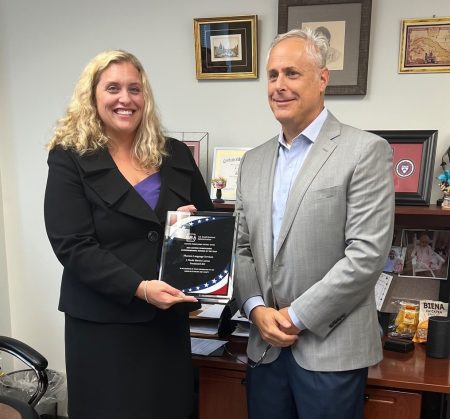The U.S. Trade Representative is changing how it defines barriers to trade in its yearly report on international trade estimates. This move has angered some major business groups in the U.S., as it goes against concepts that the tech industry has always valued.
U.S. Trade Representative Katherine Tai said in a statement that the NTE Report has been getting a lot of attention this year because they're working to bring it back to its original purpose. She also mentioned that each government, including the U.S., has the right to regulate for valid public policy reasons.
The USTR says that the change will consider barriers to trade with foreign countries more from the countries' own perspectives and less from the U.S.'s perspective. This is upsetting U.S. multinational companies, as they feel it reduces their influence.
The U.S. Chamber of Commerce expressed concern about the USTR's editorial change, stating that by no longer objecting to trade violations, the USTR is risking giving foreign governments the green light to raise barriers against U.S. exports and discriminate against U.S. companies.
Technology companies, especially, are very angry about the omissions, like the exclusion of barriers to what they call “digital trade.”
The Computer and Communications Industry Association, a technology trade group, complained that in the past, the USTR has pointed out regulations like Europe’s Digital Markets Act, the EU’s AI Act, Indonesia and Vietnam’s data localization requirements, and both Australia and Canada’s Online News levies as trade barriers. This year, these barriers were not identified by USTR as problematic or have been significantly reduced compared to last year.
The USTR views this change as a return to the original form of its national trade estimate (NTE) report, which the agency says valued national sovereignty more highly.
The agency stated that over the years, the NTE Report has strayed from its original purpose to include measures without considering if they may be valid exercises of sovereign policy authority.
Companies are concerned about the changes in U.S. trade policy under the Biden administration and the U.S.'s continued move away from multilateral trade agreements like the one formalized by the World Trade Organization (WTO).
The Pharmaceutical Research and Manufacturers of America (PhRMA), a trade group representing drug companies, submitted comments for the NTE in October, highlighting how USTR’s policies are failing to protect American innovation abroad. They pointed out licensing agreements in many countries that they said are undercutting their business.
In October, PhRMA stated that historically, both Republican and Democratic administrations have aimed to address these barriers by promoting trade policies and agreements that value innovation, protect IP, and support open trade. Unfortunately, they believe that the Biden administration has significantly strayed from that approach.
The group described Biden’s trade policy as “unambitious,” foreshadowing a letter from GOP senators to U.S. Trade Representative Katherine Tai earlier this month that used the same phrase in regard to agricultural exports.
The senators claimed that the USTR is following a U.S. trade strategy that is not ambitious enough and is not effectively increasing market access or decreasing trade barriers.









